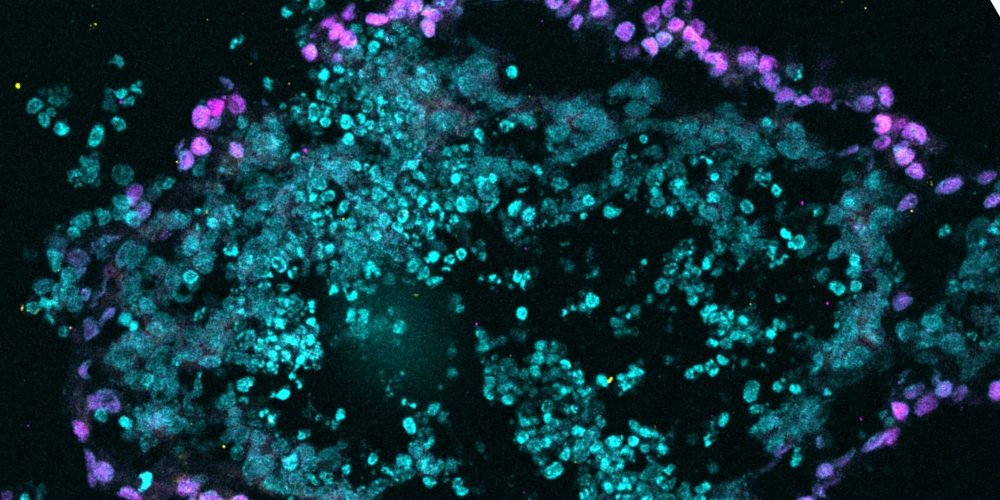Ribosomes produce all the body’s proteins and are therefore also referred to as "protein factories". Their architecture and function have largely remained unchanged over millions of years, highlighting their importance for all organisms. Despite this high degree of conservation, individual ribosome components did change and new components emerged in evolution.
In their latest study, the teams of Prof. Mihaela Zavolan and Prof. Anne Spang from the Biozentrum of the University of Basel have studied the function of one of these recently evolved ribosomal components, a protein called RPL39L. They have revealed its impact on protein synthesis as well as its role in cell differentiation. Their findings have been published in "Nucleic Acids Research".
RPL39L is important for cell differentiation
Using a novel mass spectrometric approach implemented in the Proteomics Core Facility of the Biozentrum, the researchers have demonstrated for the first time that the RPL39L protein is not only part of sperm cell ribosomes, as already known, but is also found in the ribosomes of mouse stem cells, as well as in human stem cells, and human cancer cells. Furthermore, they have discovered that RPL39L affects the ability of stem cells to mature into different cell types and tissues.
“We switched off RPL39L in mouse embryonic stem cells by CRISPR/Cas9 genome editing,” explains Zavolan. “These manipulated stem cells have lost their ability to differentiate into sperm cells and are somewhat ‘confused’ as to what cell types they should give rise to. The key question that we wanted to answer was ‘what is it that RPL39L does to so profoundly impact cell differentiation?’”
Specific structure for efficient protein synthesis
To answer this question, the researchers collaborated with researchers from the ScopeM facility of ETH to determine the structure of ribosomes that do and ribosomes that do not contain RPL39L. Using the high-resolution cryo-electron microscopy technique, they have found that RPL39L changes the structure of the ribosome tunnel from which new proteins emerge. The structure of this tunnel impacts the way proteins assume their correct structure, which is key to their function. RPL39L facilitates the correct folding of a specific class of proteins that turns out to be important during cell differentiation.
“Misfolded and non-folded proteins are quickly degraded in the cell by various mechanisms, including one called autophagy,” says first author Arka Banerjee. "We could indeed observe that embryonic stem cells lacking RPL39L have an increased rate of degradation of specific proteins relative to normal stem cells, which suggests an increased production of defective proteins in these cells.”
Modular ribosomes to meet the needs of cells
Variant ribosomal proteins or ribosome-associated proteins can serve as switchable modular components for adjusting the composition and shape of ribosomes, to thus fine-tune protein synthesis to the needs of individual cell types.
Protein synthesis being such a central activity in any cell, research into ribosomes provides valuable insights into cellular processes and the development of diseases such as cancer. The presence of RPL39L in various tumor cells suggests that this variant may also play a role in cancer development. What modular components do and how embryonic stem cells and cancer cells use them to fine-tune the quality and efficiency of protein translation is an area of open investigation.
Original article:
Arka Banerjee, Meric Ataman, Maciej Jerzy Smialek, Debdatto Mookherjee, Julius Rabl, Aleksei Mironov, Lea Mues, Ludovic Enkler, Mairene Coto-Llerena, Alexander Schmidt, Daniel Boehringer, Salvatore Piscuoglio, Anne Spang, Nitish Mittal and Mihaela Zavolan. Ribosomal protein RPL39L is an efficiency factor in the cotranslational folding of a subset of proteins with alpha helical domains. Nucleic Acids Research, published online 23 July 2024
Contact: Communications, Katrin Bühler



